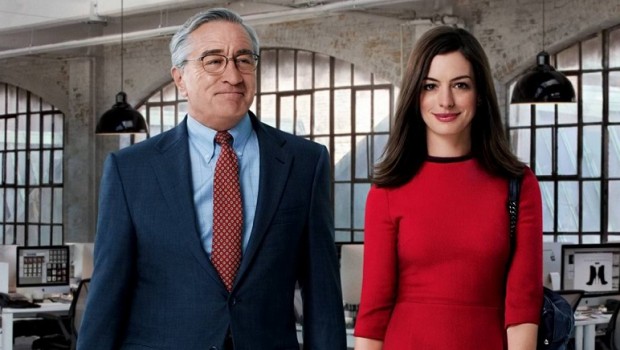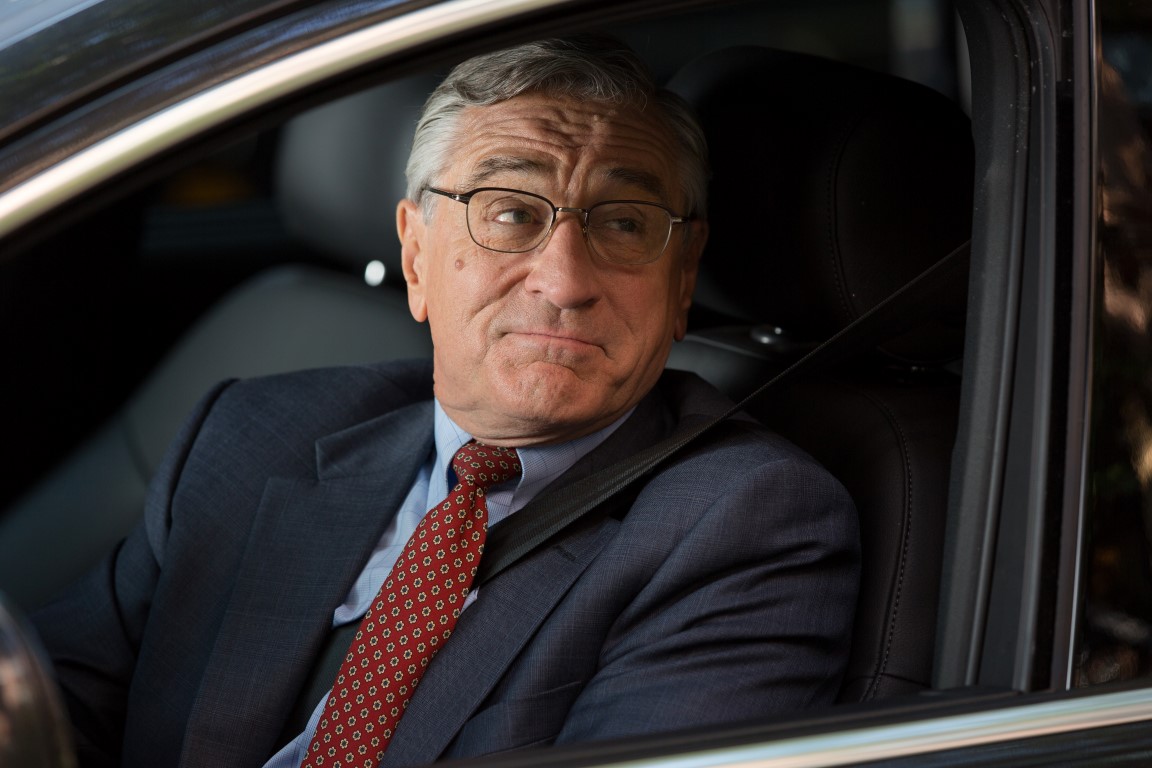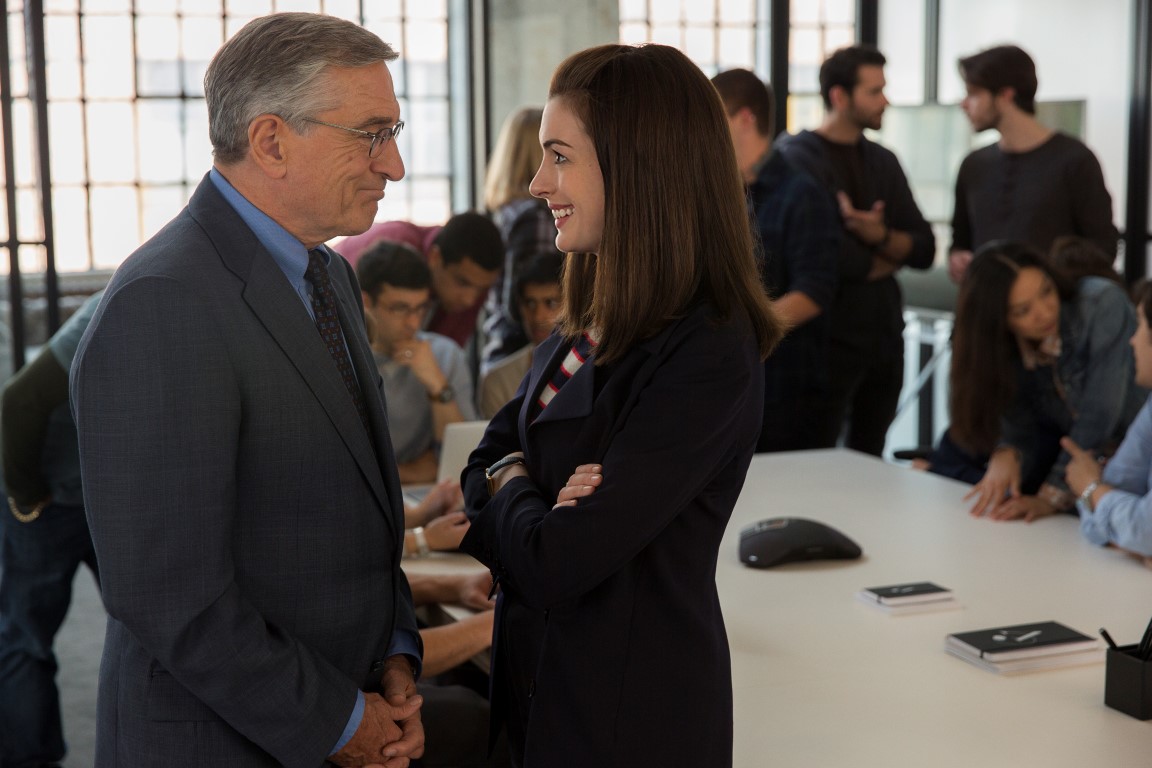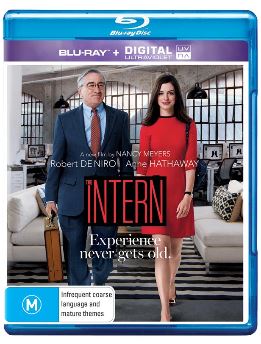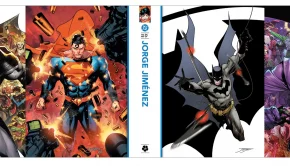The Intern Interview (Q&A with De Niro, Hathaway & Meyers)
ROBERT DE NIRO (Ben Whittaker), ANNE HATHAWAY (Jules Ostin) & NANCY MEYERS (Director/Writer/Producer) Q&A
QUESTION: Part of what we know and love about Nancy Meyers’s catalog of films is how she always finds fresh, witty ways to address various social issues. Nancy, can you talk about some of the ideas you wanted to weave into The Intern?
NANCY MEYERS: Obviously, the concept of retirement – whether or not you’re ready for it, and somebody’s desire to stay part of things and not be pushed aside – is talked about. I enormously enjoyed all the research I did about start-ups; I found that whole culture interesting.
Anne plays a woman who’s a founder of a company. I was just telling someone the other day that when I wrote Baby Boom, it wouldn’t have occurred to me to make Anne’s character the boss, and when I was writing the character of Jules, it wouldn’t have occurred to me to make her an employee.
I’ve been able to make movies over such a long period of time that I can examine the lives of these women who have families and have children, and I think the world has changed enough that now I have a chance to look at the stay-at-home dad or the mom who is running a big company and all that entails.
But the primary thing I wanted to write about was the friendship between two people that is, in its own way, a love story, but not a romantic one.
QUESTION: For the actors, can you talk about your impressions of some of the issues Nancy has woven into the film?
ANNE HATHAWAY: Well, I think one of the things that Nancy has done with this movie and throughout her career is find things that we relate to via humor, via motion, and just throughout our lives. She usually has a knack for getting there first and making observations. In this case in particular, I think she’s really got her finger on the pulse with the observations she’s makes about generational humor, and gotten there, I think, before a lot of other people. This isn’t an issue with the movie; it’s just something I love about it.
I just love that it’s a movie that I feel like I can go to see with any of my friends. I have friends who are twenty years old and I have friends who are eighty-three years old. And I can go see The Intern with any of them. I’d love to see this movie with my parents, and I don’t know that we’ve had a movie like that in a long time – a movie that can appeal to everyone and one that, whatever age they are, they can find humor in it.
QUESTION: Mr. De Niro, did any issues in the film resonate with you when you signed on?
ROBERT DE NIRO: Well, I was honored and flattered that Nancy asked me to be in the movie. She gave me the script, I read it, I liked it a lot, and I think everybody’s already said it. Nancy deals with what’s going on today and the whole flip side of me being the intern is what makes it more interesting and fun. Right? [Laughs] She dealt with the issues at hand.
NANCY MEYERS: Yeah, and the value of having Ben in her life. [Laughs]
QUESTION: Mr. De Niro, do you see this as a love letter to your generation and how relevant your kind of wisdom and discipline can be to today’s generation?
ROBERT DE NIRO: That’s a good way to say it, but I think it is her love letter to us guys too. And it’s fun. I hope the movie is seen by a lot of people because it is this kind of movie. We do tend to feel that when you’re at a certain age, you get older and you’re less relevant in some ways. And that’s just not the case. It’s just that some people are aware and sensitive to that when they’re younger. When you get there, you certainly know it, and sometimes you don’t know it until you get there. There are a lot of people who are there already. So hopefully they’ll see the movie.
QUESTION: For Nancy and Anne, there’s a sense that it’s lonely at the top for Jules in the film. Is this something that you see particularly in successful women, wherever they are in society?
NANCY MEYERS: I never would have thought of that if you hadn’t said it. That’s interesting. But, no. I can only write what I know, so I imagine that any man with this company would also feel that. I don’t necessarily think it’s because she’s female. I think when you’re taking on a big thing like that, it’s you. You’re a one-man or a one-woman band. I didn’t see it as lonely. Did you feel that playing it?
ANNE HATHAWAY: I’m so relieved to hear you say that because I was thinking, ‘I don’t know how to answer that.’ That never occurred to me.
I thought it was not because of a gender issue, but just because Jules is a private person. I think she’s so dedicated to her company that she dreads the idea that anything in her personal life could impact her ability to do her job and keep the company going. And she doesn’t really have anyone to confide in. Then she meets Ben, and their friendship develops organically and she winds up opening up to him and taking his advice, because she really, really respects him, and because it’s sound, excellent advice. And, like I said, that’s not forced. It happens organically, so I just thought she was more isolated just, as Nancy said, because of her position.
One of the things that I love about the movie is that Jules has so much heart and she builds an incredible structure. It has bones, but there’s no connective tissue in it and nobody at the company knows how to build connective tissue. That’s where Ben comes in, and he kind of figures out how to get everybody to connect to each other.
I just love that observation that in this day and age, when we have all the tools for communication at our disposal, we’re using them in such a way that sometimes doesn’t take full advantage of them. Or they’re taking full advantage of them, but it’s not as effective as having a one-on-one conversation. Nancy made amazing observations about how old school meets the new world and each is made better because of the other.
QUESTION: For Mr. De Niro, your character Ben is such a great mentor for Jules in this movie. Was there a mentor in your own life who made an impact? And are you as technically challenged with computers as Ben is? [Laughs]
ROBERT DE NIRO: I’m a little less technically challenged, but I’m not far behind. [Laughs] No, I never had a mentor like that. I don’t envy it, but I do think that’s a great thing if you are lucky enough, especially if you’re in a certain untenable situation and you have a mentor who will change your life. And they can do that.
I mentored myself in a lot of ways. [Laughs] But I think it’s a great thing, and I like to give advice to younger people if they ask for it. I have, at times, asked questions of people who were further on in their careers, like [director] Elia [Kazan] or certain actors who are a generation ahead of me – like what to look out for in all your experience – because I wanted to take a shortcut in some things. I don’t want to have to do something if it’s going to be a negative experience; well, just get some words of advice.
So I do that for people if they ask me. I don’t volunteer it, but I’m certainly there if somebody needs it. I have some young friends who sometimes ask me for my opinion on what the situation is, and I give it to them.
QUESTION: On the flip side, you’ve had interns, I would imagine, at your production company, Tribeca. Did making this film give you any extra insight into the intern experience?
ROBERT DE NIRO: Well, I’ve had some mentors who I now work for. [Laughs]
QUESTION: So they now get to boss you around?
ROBERT DE NIRO: No, they’re just very respectful. [Laughs] But they never forgot where they were working before, so it’s nice. I’m very proud of them. It’s a great thing with Tribeca, after all these years.
NANCY MEYERS: Well, one of my interns is in the movie, Jason Orley. He plays Lewis, the kind of scruffy kid that sits to Bob’s right. He was my intern on It’s Complicated. I think, unconsciously, I was kind of writing him. I wasn’t fully aware of it until I emailed him one day with, ‘Can you act?’ Just in the subject line. I didn’t actually write anything in the email.
QUESTION: He was pretty good.
NANCY MEYERS: He was pretty good, right? He’s never acted before.
ANNE HATHAWAY: I don’t have an intern, but I was on a photo shoot recently and I was greeted at the top of the day when I arrived by an intern, and I think because of our movie, I went out of my way to pay her a little extra attention – ask her questions about who she was, why she was doing this, where she wanted to go.
QUESTION: This question is for the actors. Can you each speak about collaborating with Nancy and share what you admire about her?
NANCY MEYERS: Uh-oh. [Laughs]
ROBERT DE NIRO: Well, I’m used to doing movies that took as much time as our movie did. I’m from, I guess, that generation. It just stopped at a certain point, except for certain types of big science fiction movies. These days, movies don’t have the luxury of extremely long schedules, unless you just find yourself there because you’re in it and you have to finish it, and it’s going to take longer than everybody hoped it would.
But Nancy was very specific – which was great – about what she wanted, and I totally get that and understand it. We’d do a lot of takes at times, but for good reasons. Bottom line, she was terrific.
QUESTION: How long was the schedule?
ROBERT DE NIRO: We shot for fifteen weeks.
NANCY MEYERS: About half of what I’m used to, but twice as much as a lot of movies. So, for me, I was racing on rollerblades the entire time.
QUESTION: Anne, what about your thoughts on working with Nancy?
ANNE HATHAWAY: Well, if you look at Nancy, you see this tiny, adorable woman with awesome hair. [Laughs] And, at least at first glance, I had no idea the tenacious, uncompromising, inexhaustible powerhouse that she is. I’m so lucky that I got to work with her on this. In terms of a collaboration, it’s true. I admired her so much, and even more now having made a movie with her. It’s beyond.
When we started, we saw the character in two different ways. I wanted her to be wearing her stress more on her sleeve, whereas Nancy wanted Jules to have it a little bit more together. And I had this moment where I was thinking, ‘Okay, we see it different ways. Am I going to feel uncomfortable if I’m not following my instincts?’ Then I realized, ‘Who knows a Nancy Meyers character better than Nancy Meyers? These characters are beloved by her. Trust her.’
It became this wonderful exercise in being guided through a character, which is very new for me. So I felt like it was a true collaboration. And Nancy is the funniest person I’ve ever met. I think she’s probably the smartest person in any room she’s ever been in. And I imagine, having been a woman in this industry for the last 30 years, it’s not easy being the smartest, funniest person in the room and being a woman, but she’s handled it with tremendous grace.
NANCY MEYERS: Oh, my god! [Laughs]
ANNE HATHAWAY: I really hope this movie is a global hit because she deserves it. [Laughs]
NANCY MEYERS: That’s the nicest thing anyone’s ever said about me. Thank you so much, Anne. What makes it easy, though, is that these two actors are great people. So when you’re surrounded by great people, they make you better and allow you to express yourself all the time. They’re open and, as I was saying with Bob earlier, they’re safe. That’s really what you want. That’s what we all want when we make a movie – just to feel safe to be ourselves and get what we need.
They allowed me to do my work in a way that’s now on screen. It’s the result of what we all did every single day for that short amount of 14 weeks. [Laughs] I was barely there, as far as I’m concerned. [Laughs]
QUESTION: For the actors, can you talk about how your characters enhance or change each other’s lives, and also how would you say that this film speaks perhaps differently to different generations of moviegoers?
ROBERT DE NIRO: Well, it is what it is. I mean, Jules learns from him, even though he’s older and all that. And as people get older, they’re kind of sidelined in a way, but the point is that Ben ends up being someone very important, if you stop and look and listen. He has advice that only somebody who has been on the planet a lot longer can give. So, Jules gets that from Ben and my character and I get certain things from her. It’s really that simple.
ANNE HATHAWAY: It took me a long time to crack Jules, because I kept looking for her deep, dark secret, and it turns out she’s just a really wonderful person on the inside. That’s actually the secret of her strength; that’s the thing that makes her a great boss – she’s a deeply decent and nice person. And the reason this story is being told about her in this moment is that she’s in the midst of unbelievable stress.
She has everything she needs to navigate this moment, except space and a compassionate ear. And that’s what Ben brings into her life – a tremendous amount of compassion. I don’t know if it’s a generational thing or what, but I feel like there’s a lot of judgement in the world, particularly when people are in a more visible position like Jules would be as the CEO of a startup and her business has grown so quickly. And Ben doesn’t judge her. He just observes her and opens her and gives her a safe space, full of compassion and understanding. And she thrives in it, and actually he does that to a lot of people around him. They all thrive as a result of it. It’s a simple thing, but it’s not something we see very often in our world, but I think if we could see more of and perhaps contribute to that, we’d see a lot of really positive results.
In terms of the generations, there’s a joke that unfortunately got cut from the movie, but it was my favorite. It’s a scene where a character is over at Ben’s house and they’re talking, and he puts his beer on the coffee table. Ben looks down and says, ‘Why would you put your beer next to the coaster?’ [Laughs] I just feel like my generation laughs because we’re really bad about using coasters, and Boomers laugh because it’s a legit question. That’s an example, I think, of how so many of the jokes work both ways. They’re so satisfying.
QUESTION: If you had a chance to sit down with the characters you’re playing, what would you like to know about them, and what advice would you give them?
ROBERT DE NIRO: Well, I’d get more specific. This is hypothetical. If she were basing Ben on a real person, I would just ask him a lot of questions about his everyday habits, what he think about things. And just on and on. That’s what I would do.
ANNE HATHAWAY: That’s hard, honestly, because I asked all the questions and created what she’s interested in, along with Nancy, so I don’t feel like I have that many questions left of her. It’s a great question, but I’m not sure.
QUESTION: What advice would you give her?
ANNE HATHAWAY: Well, we’re the same age. I don’t know that I can have any authority to give her advice, necessarily. Value your assistant more. [Laughs] But Ben gives her that advice, so she doesn’t need to hear it from me. And, honestly, by the end of the movie, I’m on her side. In the beginning, you would say things like, ‘Make more time for yourself. Dah, dah, dah.’ But Jules is really doing the best she can by the end of it, and I think she’s being authentic to herself and her feelings. I don’t think she’s a dramatic person who craves confrontation, and she’s honoring that aspect of herself. And by the end, I think she’s treated herself and everyone around her with respect.
QUESTION: Nancy, did you have models in mind when you wrote these characters?
NANCY MEYERS: Yes. I would say Spencer Tracy from Guess Who’s Coming to Dinner and Katharine Hepburn from whatever she did after The Philadelphia Story. Those two. But not at the same time.
QUESTION: In some ways, this movie is a two-way mirror and a rearview mirror in terms of how you experience the characters. For all of you, was there a particular time of your early life that gave you angst that now you look back on and wonder why you were so worried about it?
NANCY MEYERS: I have so much angst at this age [laughs], so let me try to rewind. Well, doing what I do and putting yourself out there in terms of making a movie and what I want to make a movie about, and wrangling all these brilliant people to go along with you – there’s a lot of angst: ‘Am I doing the right thing? Am I serving them correctly? Is the audience going to want to go see it?’ And then the movie comes out and it does well and I think, ‘What was I so worried about?’ I go through that a lot. So, I’m trying to teach myself to just calm down about it all a little bit as I get older.
ROBERT DE NIRO: Well, anxiety is always there, I think. As long as you’re alive you’re going to have anxiety about something. The things that were important 15 or 20 years ago are less important today because I know that I can get the same results on certain things. It doesn’t warrant as much angst or anxiety about that, how to solve that problem, as I thought of it then, now.
NANCY MEYERS: He’s a really kind of Zen guy.
ROBERT DE NIRO: Sometimes.
ANNE HATHAWAY: [Laughs] Yeah … no, he’s a Jedi.
NANCY MEYERS: I mean, there are a gazillion people running around and he’s just sitting in a chair, having a little tuna sandwich, on the phone. [Laughs] And the world can be going by. He’s got it down. He’s always there when you need him, and, by the way, I think seeing that really helped everybody in the movie. The rest of us are running around, and he’s just right there, calm.
ANNE HATHAWAY: Yes.
QUESTION: Did you consider Jules’s assistant as the younger version of Ben or someone who will someday be like Ben?
NANCY MEYERS: Oh, that’s interesting. I hadn’t thought of that. Hopefully we can all become Ben. (Laughter)
QUESTION: For the actors, your dynamic in the film is so intriguing. How did you develop this dynamic?
ANNE HATHAWAY: Bob and I did some extreme bonding at the Century 21 mall. We went shopping… [Laughs] No. We didn’t do anything special. But that’s a funny thing. I just trusted everything was going to be okay. Bob’s an easy guy to get along with. He is, as Nancy said, incredibly Zen and calm and approachable.
I couldn’t talk around him for the first three weeks – I just felt like an idiot, everything I said. And once I calmed down about that, I just trusted the words. It didn’t matter how I felt, because Jules feels comfortable around Ben and I just trusted that that was going to carry us. And Ben feels comfortable around Jules. And Nancy was going to guide us, and it worked.
Also, I had a lot of film history on my side. Bob’s good at having chemistry with people. So I assumed that as long as I didn’t mess it up, we’d be okay. [Laughs]
ROBERT DE NIRO: She just said it. [Laughs]
NANCY MEYERS: See how Zen that is? One sentence says it all.
ROBERT DE NIRO: That’s it.
QUESTION: How about you, Nancy? How did you see their dynamic?
NANCY MEYERS: Well, I’d never written anything like that before, so it grew as I wrote it, and the movie became more clear to me as I was writing it. It really was the engine that was driving me – this relationship. And me kind of wishing I had somebody like this.
I’ve been asked a couple of times, ‘Who mentored you.’ I didn’t have that person. So, this is a different kind of wish-fulfillment. [Laughs] Wouldn’t it be great to have somebody on your side at the really stressful times of your life who doesn’t say, ‘Your 45 minutes are up.’ Someone who is really there for you.
ROBERT DE NIRO: By the way, it got you this.
NANCY MEYERS: Yeah, that’s sort of the fun thing about being a writer – you get to create scenarios that you maybe don’t have in your own life.
QUESTION: What, if anything, did each of you learn about yourselves in making this film and the process?
ROBERT DE NIRO: I don’t know if I learned anything about myself that I didn’t know already. [Laughs] But I had a very good time doing the film. It was just a really terrific experience. That’s all.
NANCY MEYERS: Well, it’s different for me. Making the movie was different. I’d never been on practical sets before. I’d always been on soundstages and had walls that move, and that kind of stuff. So it was fun, actually. I was scared in the beginning. There were times where directors sit in front of a monitor, and in those Brooklyn houses, I was under the stairs, literally, wasn’t I?
ANNE HATHAWAY: You were. Like in Frodo’s house.
NANCY MEYERS: Yeah, I was. [Laughs] I’d get up and stay hunched over as I walked. So, for me, I learned there were new challenges, just not performance challenges, just in terms of the way we made the movie. It was interesting. I learned about another kind of way of making a movie.
ANNE HATHAWAY: I can’t explain why it happened for me on this movie, if it was my character or a dynamic or just being around Bob’s Zen or what, but, it was just to trust that the unknown could be good. I actually had a wonderful time making this movie, and I think it yielded a more relaxed performance and I’m really proud of the work that we all did up there and what we created. It turns out that you can make a movie without having like nonstop sleepless nights. [Laughs]
THE INTERN is now available on Blu-ray, DVD & Ultraviolet


